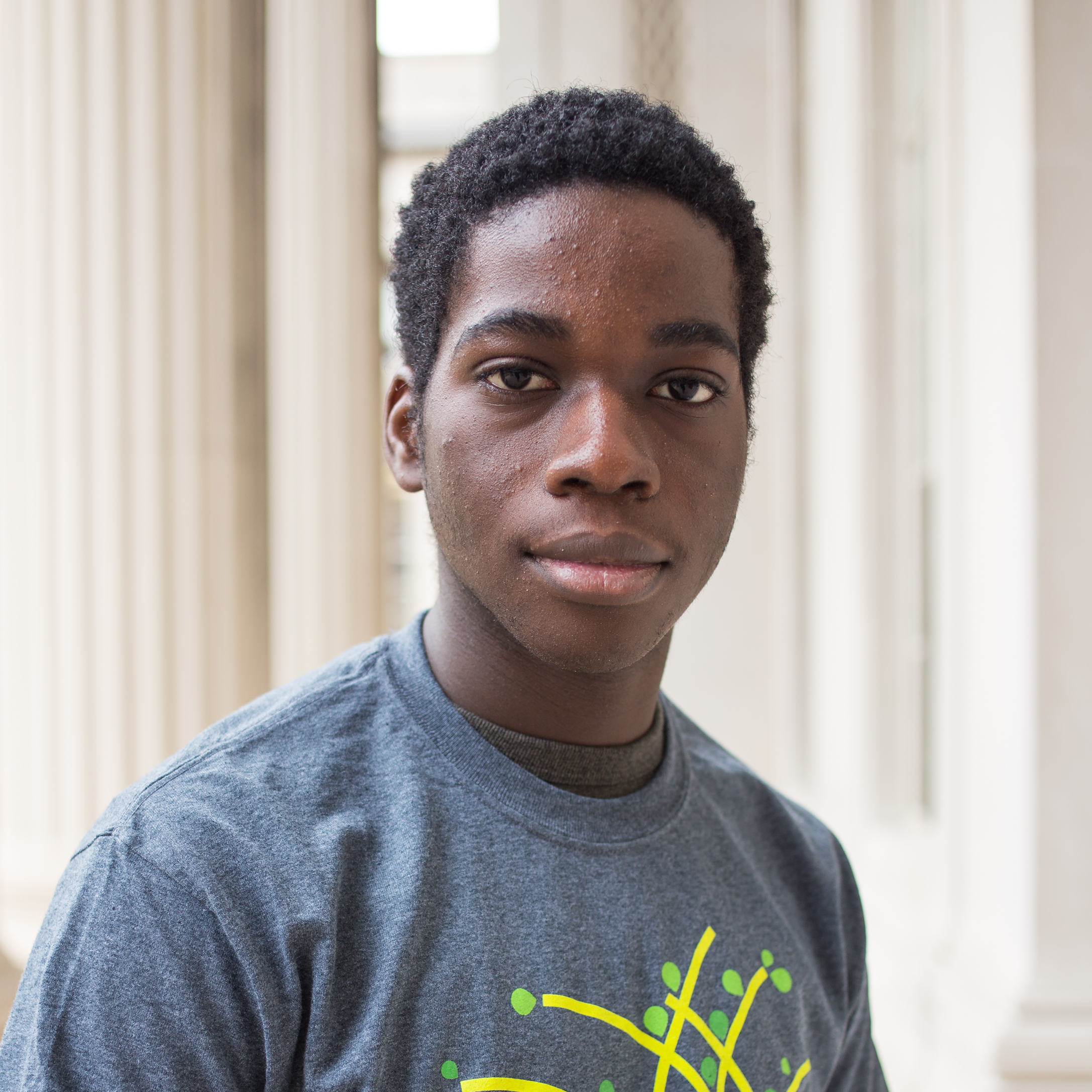We create new pathways for our students; help them develop the skills they need and a sense of belonging in the STEM fields; and empower them to use their knowledge to address urgent issues facing their communities and the world at large. Together, all of us at MITES—our staff, our instructors, and our scholars—live MIT’s mission to make the world a better place, for everyone.
Our programs
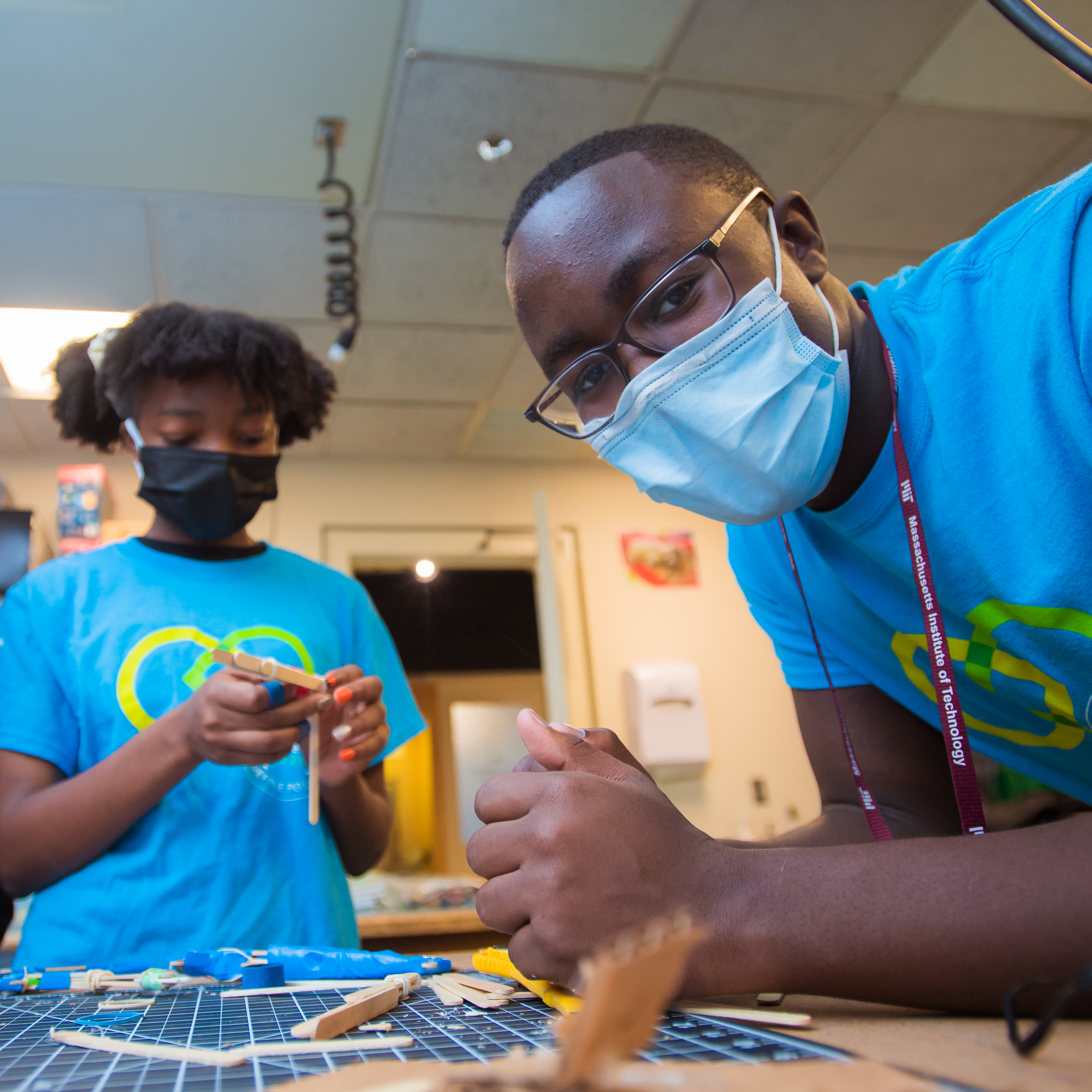
MITES Saturdays
Multi-year STEM academy for 7th–12th graders in Boston, Cambridge, and Lawrence, MA public schools (formerly known as SEED Academy).
Discover MITES SaturdaysMITES Semester
Six-month hybrid STEM experience for rising high school seniors, June through December (formerly known as MOSTEC).
Discover MITES Semester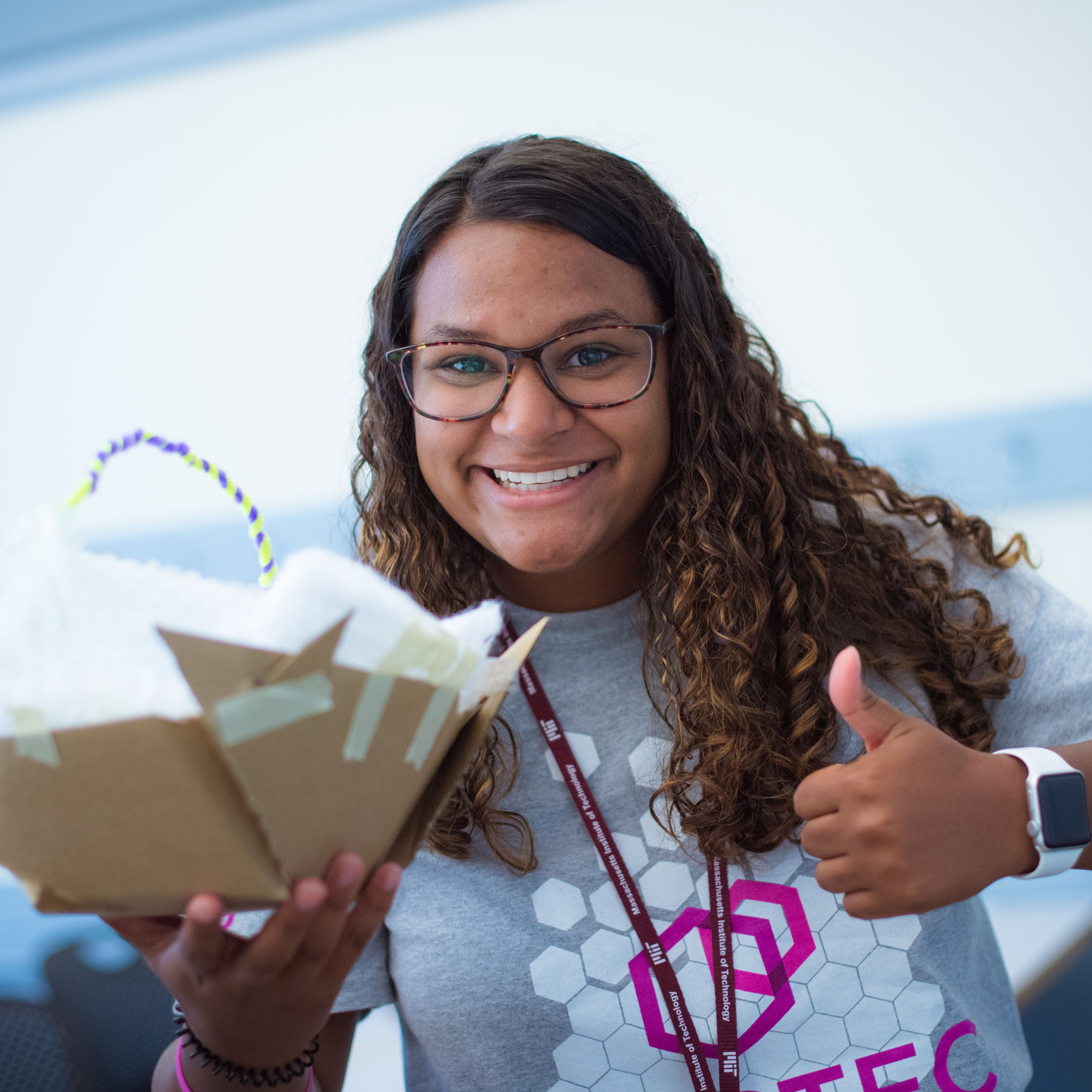
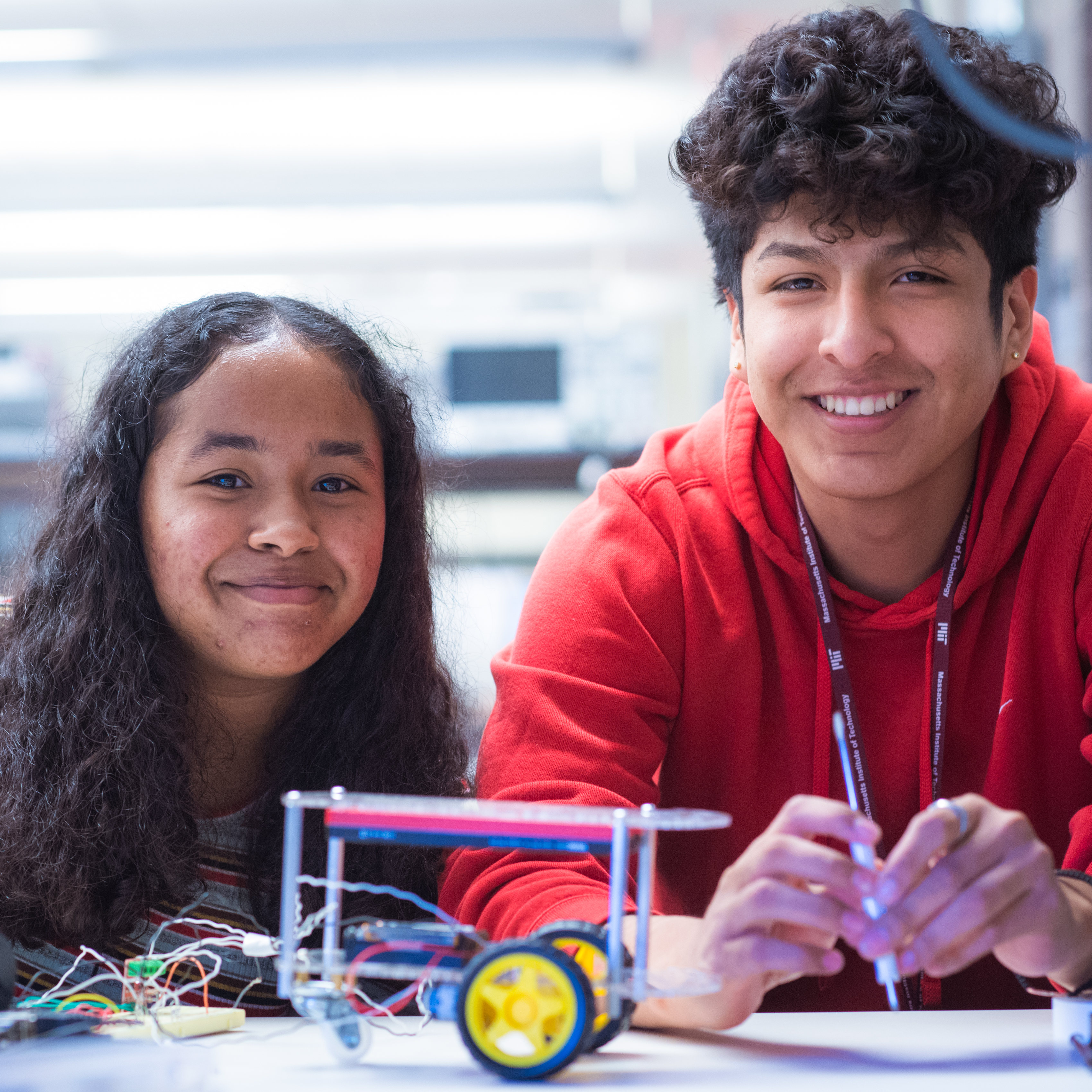
MITES Summer
Six-week, residential STEM experience for rising high school seniors (formerly known as MITES).
Discover MITES SummerFree for students
MITES programs are free of cost to students. All educational, food, and boarding costs are covered by generous individuals, foundations, corporations, and MIT. Students only pay for transportation to and from MIT. Transportation is provided to students from Lawrence, MA participating in MITES Saturdays. Travel scholarships are available to MITES Summer and Semester students.
MITES was my first real exposure to STEM fields beyond my own at-home and online research.
I got a truly unique experience that I wouldn’t have otherwise had because of my circumstances. I was connected with professionals in many fields, not just the ones I knew about or had an interest in. Because of MITES, I know that there is nothing I can’t overcome and that I am capable of more than I know. I am so much more than a Latina from an underprivileged neighborhood with big dreams. I am a challenger of today and a transformer of tomorrow.”
Yashaira Longras
MITES ’19, Brooklyn, NY
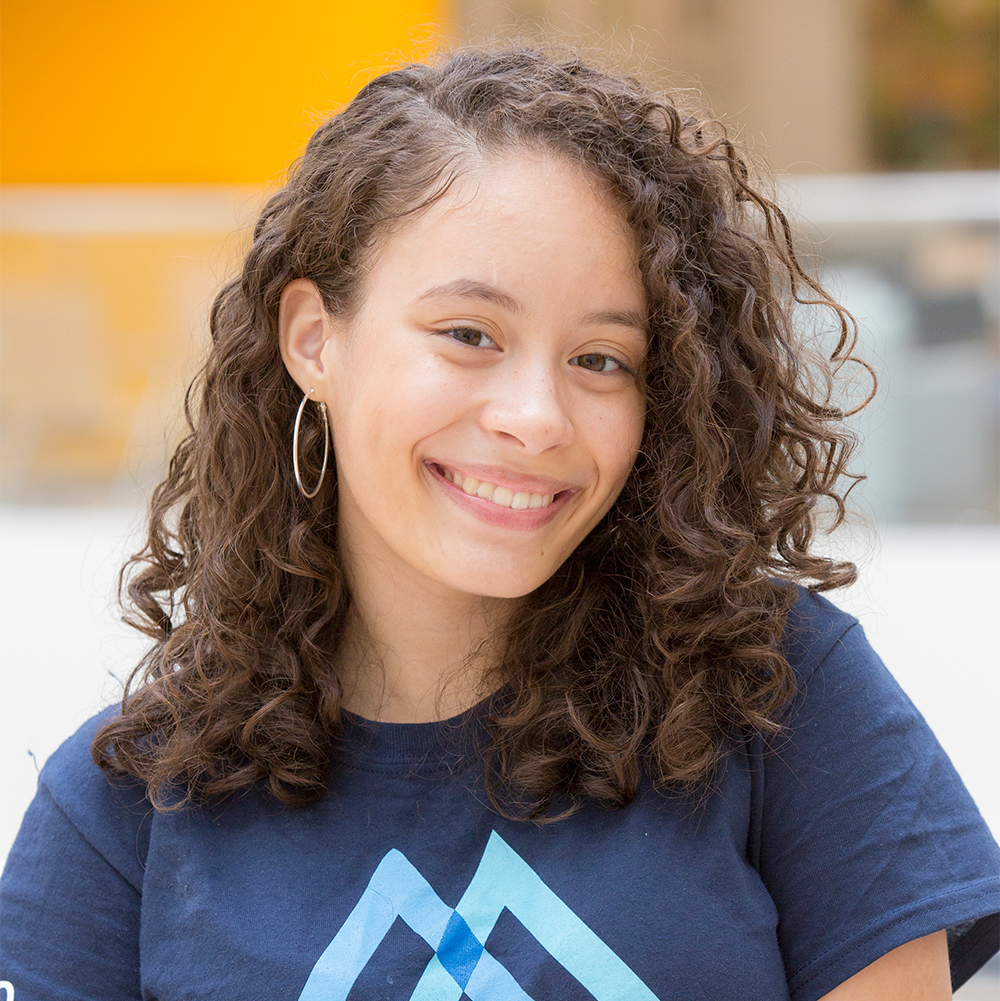
Watch and listen
MITES students share their experiences in our Saturdays program.
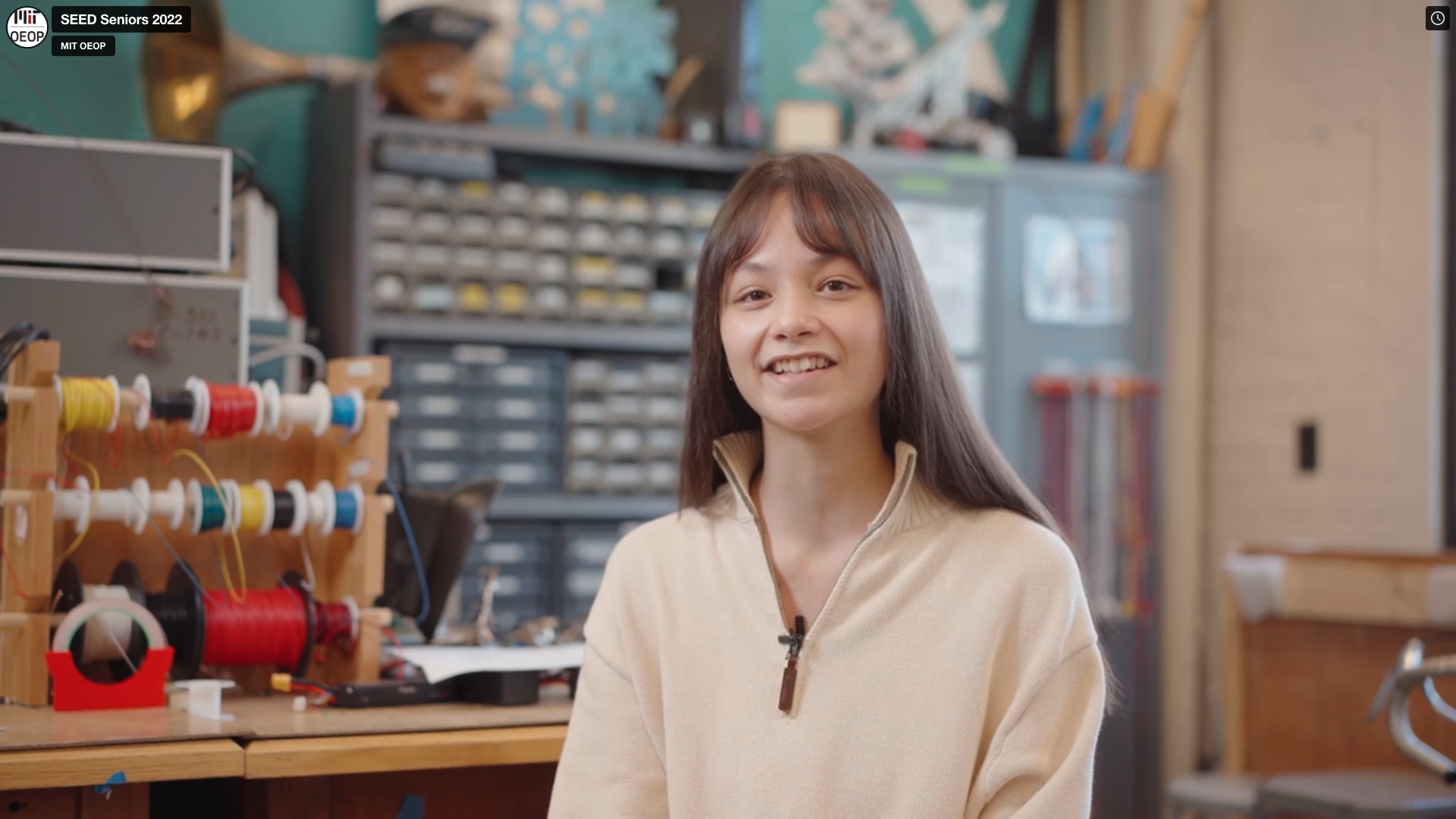
Our Impact
404
Students served in 2022
76%
Students from backgrounds underrepresented in STEM
83%
Alumni who earned STEM degrees in the past 10 years
90%
Alumni who attend most selective colleges and universities
MITES has not only trained me analytically, but also socially.
In this program, I was granted the opportunity to challenge myself and learn about new sciences I had never encountered before… and I’ve gone from being a shy and reserved student to an outspoken and fiery adult, ready to tackle the next chapter of my life head on.”
Denzel Ekes
MITES ’20, Boston, MA
